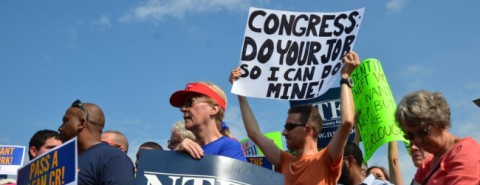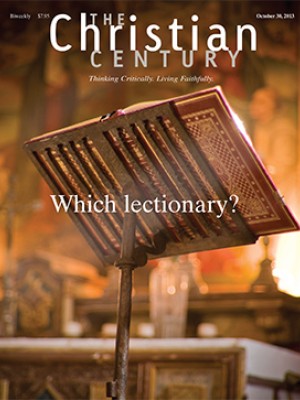Still hopeful
Accessible, affordable health care is a priority for people of faith who believe that love for one’s neighbor is a fundamental moral imperative. For decades thoughtful Americans of all political persuasions have known that there is a health-care crisis in the United States. We spend far more money on health care than any other nation does, and we see no commensurate results in better health. Costs rise, insurance premiums soar, and millions are left without coverage. Many lower-income and poor Americans have no insurance and rely on hospital emergency rooms for basic health care.
A friend of mine is the CEO of a metropolitan medical center and a thoracic surgeon. He’s traveled to emerging nations to teach and to consult with other health-care professionals. When I asked him how we measure up next to nations with universal health-care systems, he said that if you are critically ill and have money, the United States is the best place in the world to be. But if you are a little sick and have no money, you are better off in Cuba.
Read our latest issue or browse back issues.
Many U.S. presidents have promised to address the situation, but although some have come close, it was President Barack Obama who finally got the job done. The Affordable Care Act may not be perfect, but it is the closest this nation has come to making health care available to all its citizens. How distressing, then, to watch a small faction within the Republican Party try to stop the ACA by holding the nation hostage and paralyzing the government.
I have great respect and gratitude for our system of government. I understand that the partisan dynamic in Washington is a healthy part of a democratic, two-party system, and I trust the wisdom of voting citizens to ultimately make responsible decisions and elect honest, responsible representatives. But my respect and gratitude are being tried.
Locally, things are no better. Both Chicago and Illinois are in bad shape due to years of irresponsible decision making. Pension funds are seriously underfunded, two former governors are in jail, another former alderman is going to jail. There are plenty of reasons for cynicism instead of respect and gratitude.
But a visit to Washington just before the government shutdown tempered my cynicism. My wife and I flew into Reagan National Airport on a sunny day. The approach was breathtaking over the rolling, green hills of Pennsylvania and Maryland and as we descended along the Potomac River. The magnificent federal city stretched out to the left—the gleaming Capitol, the Washington Monument clad in classy scaffolding that seemed to accent its grace, the Lincoln Memorial. I was thrilled to see them all. We visited the FDR Memorial, and I was reminded that when the nation faced two very real threats, the Great Depression and a world war, strong, wise political leadership got us through. At the MLK Memorial, the figure of King emerges majestically from a mountain of rock. It reminded me that this nation has changed in the past and that, in spite of the stresses and political posturing, it will change again.
At the World War II Memorial it was raining softly, and we visitors kept a reverent silence. My family lost two uncles and a cousin in the war; two cousins made it home. I remember them all. The quiet dignity of the memorial reminded me of their sacrifice and of the nation’s resilience. It offered balm for my cynicism—and hope.







